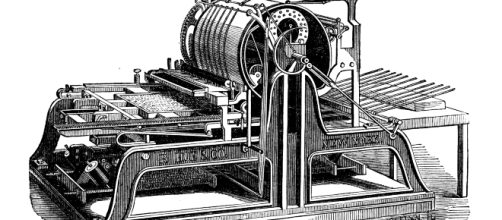Collecting dust in the libraries of many universities is a collection of essays written by Scottish philosopher David Hume. His collection, entitled "Essays and Treatises on Several Subjects," published in 1758, contained Hume's observations on passion, human nature, politics, and "Of the Liberty of the Press." The essay describes why the 18th century British press enjoyed so much freedom, and the effects that freedom had.
Hume sees the freedom of the press as a "jealousy" or suspicion of the people on a governing body. In an absolute monarchy, or autocracy, as well as in an actual republic there is a complacency in the people to accept the government as functioning.
The Free Press comes from a mixture of the two, wherein the people are neither total slaves nor totally free. The mix of despotism and liberty creates suspicion, what Hume calls jealousy.
Press and liberty
Hume discusses the importance of the press in holding back the encroachment of despotism. He sees the need for vigilance by the people to watch and analyze the movements of its governing body. Hume makes the striking point that free press creates stability and peace. He asserts that a skeptical and empirical person would not feel compelled to act because of rebellious news. Under Hume's observations it is better for peacekeeping for a person to write and publish a defiant work than act upon the same ideas.
Hume believed that as people become accustomed to having free and open discussion of public affairs the people would grow less and less susceptible to rumor and gossip. A change in opinion occurs to that matter in different publications. The original asserts that free press is irremovable, and if it is even possible to take from the people must be taken all at once. Later publications removed these optimistic claims. Instead, the newer version ends in a far more pessimistic remark on the evils of mixed government.
Hume and fake news
The press and rumor have always shared a blurry line with one another. However, in recent years the public find greater difficulty in discerning truth from fiction.
While it is impossible to know his actual stance, Hume was an empiricist valuing observation and experience over theory. He also valued skepticism, which many important discoveries often have to thank.
Hume also makes the statement that free press is only ever hazardous when the people who are reading it do not think for themselves, and, therefore, cannot distinguish truth from fiction. This idea sends a long shadow stretching to our time. Any people--under any government--who are not free-thinkers are more dangerous than free-thinking people reading dissenting opinion openly.
David Hume's work on freedom of speech and press illuminates the complex environment which allowed 18th century Britain to have the greatest liberty seen with a well-functioning government.
It is often said our times are frighteningly and increasingly looking like Orwell's "1984." 200 years ago, Hume understood the effects of a totalitarian government. He ends his essay on an equal note to Orwell's, "the giving very large discretionary powers to the court to punish whatever displeases them...we may conclude that the liberty of Britain is gone for ever when these attempts succeed."


